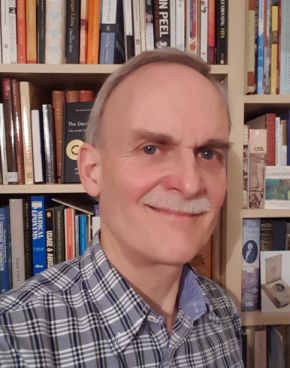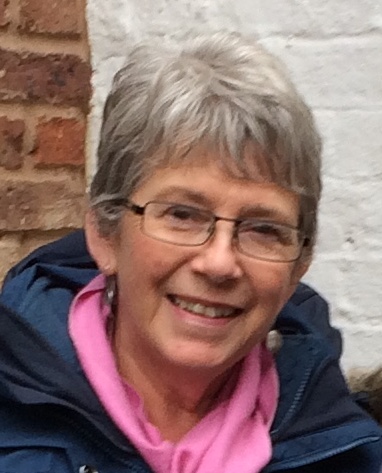The trustees
Jeff Beatty

Jeff Beatty is a member of The Religious Society of Friends (Quakers). He therefore brings with him a special interest, which is enabling a Peaceful World underpinned by sense of equality, respect for all and justice. To this end he is involved with many organisations and charities, as a participant, in an administrative role or as a trustee. He acts as Clerk to Quaker Peace and Social Witness, to Quaker Voluntary Action, to the Quaker Peace Studies Trust (Bradford) and is Chair of the Herefordshire City of Sanctuary and of the Hereford Community Land Trust. He believes that nationally and internationally there is a need to understand, to talk and to appreciate, one another. His hope is that the Pity of War with its memorial for reflection and its educational projects for creative thinking will assist in making ‘war’ an outdated concept.
Kit Byatt

Kit is a Quaker and retired as a consultant physician and geriatrician in 2016. He still practises medicine independently, writing medico-legal reports for asylum seekers to aid courts’ decision-making about their applications and appeals. He has been a supporter of Freedom From Torture for many years and is also a member of MedAct. Since 2017 he also has been actively involved with helping Syrian refugees resettled in Hereford. Through these experiences he has seen the damage inflicted on civilians, directly or indirectly, as the result of war. He worries that the tendency to glorify war tends to distract from the widespread and so often un-noticed morbidity and mortality from it for so many ordinary people who just want to go about their everyday life. He feels that all too often the plight of civilians fails to reach public awareness, especially after the conflict has ended. The impact on civilians last much longer. He hopes to raise awareness through this project, not least by educating younger people to be aware of these issues, to inform decisions and choices they make later in their lives.
Linda Murray Hale

Linda Murray Hale is a retired English teacher and a Quaker. For many years she lived and worked within in a few miles of the National Memorial Arboretum and had accompanied students on visits there.
Like Joyce Gee, she had been struck by the almost exclusively military focus of the Arboretum and welcomed Joyce’s proposal that there should be a memorial to the countless non-combatants who have suffered, and continue to suffer, as a result of war.
Today, more than ever, modern warfare causes untold suffering to civilians, many of them children, whose lives are devastated by physical and mental trauma, starvation and the far-reaching effects of the destruction of health care and education systems.
Linda feels privileged to have been invited to be a trustee of the Pity of War project and hopes to play a part in ensuring that the millions of civilian victims of war are remembered at the NMA, alongside those who have suffered and died in combat.
Linda writes:
‘The statue Pity of War, juxtaposed as it will be, with the 300 military memorials, silently poses the question: do the names listed on these ‘rolls of honour’ represent the only casualties of war?
Pity of War will stand for all the untold millions, nameless and voiceless, past, present and future, whose names will never be inscribed on any memorial: a powerful reminder of the wider human cost of war.
I hope that the exhibit will be a place of quiet reflection and, perhaps, memories. For some it will evoke recollections of their own experiences – and losses. I like the idea of some kind of interactive installation close by where visitors could record their thoughts and stories.
However, the statue is just the starting point or focus; its implicit criticism of war will be reinforced and developed through an educational resource which will encourage discussion and throw up questions, above all about the impact of modern warfare on ‘ordinary’ men, women and children caught up in conflicts that are not of their choosing or making. The resource will also, by focusing on the human tragedies, past and present, encourage empathy with victims of war. Although not overtly campaigning against war, I believe that a resource which stimulates engagement with such processes is a powerful anti-war ‘weapon’.’